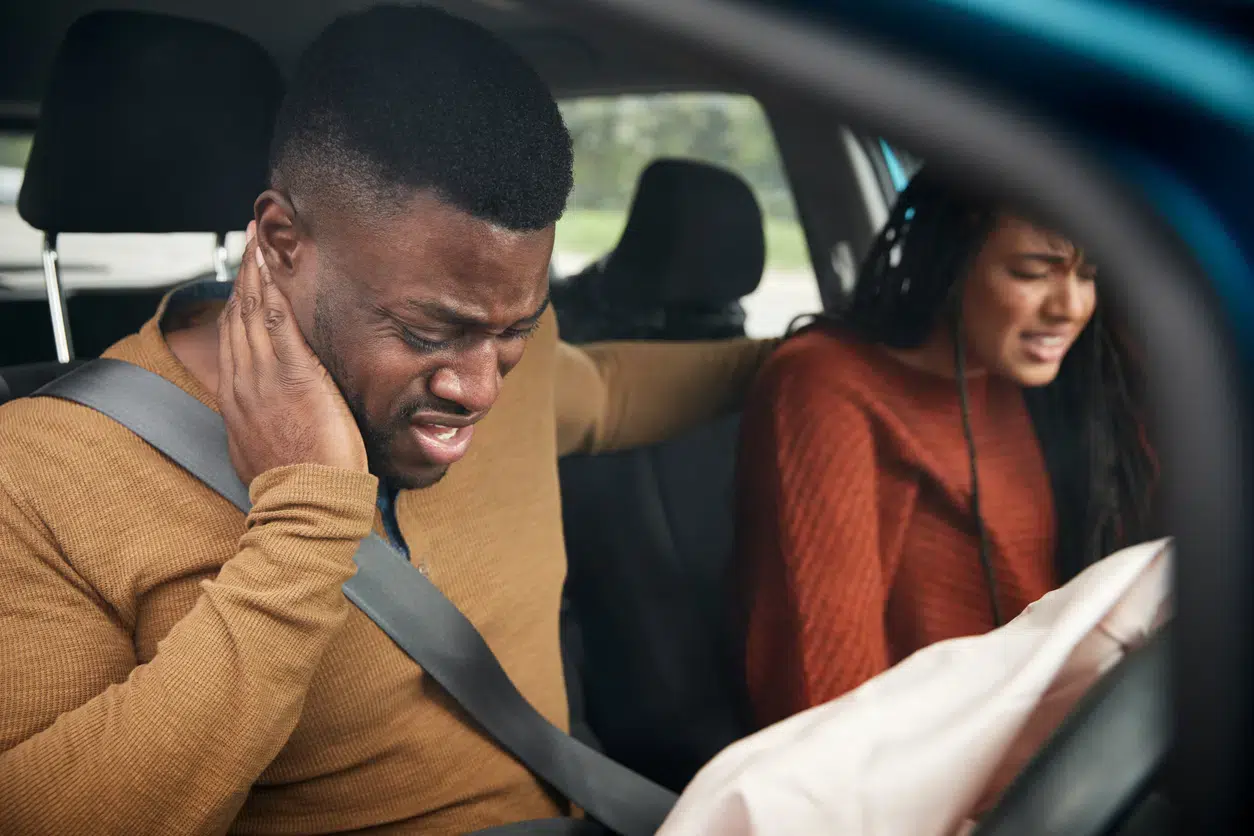Car accidents occur frequently across Texas, affecting drivers and passengers who may suffer injuries in these incidents. In the U.S., cars are deeply woven into the fabric of American identity, symbolizing freedom, independence, and mobility. Yet, with the extensive time Americans spend on the road, the risk of accidents rises, underscoring the need for legal protections.
While drivers’ liability is often discussed, passengers injured in car accidents also have rights to compensation, which can vary depending on the circumstances of the accident and the type of vehicle involved. Understanding these rights—and knowing who may be liable—is essential for any passenger injured in a car accident in Texas.
Duty of Care and Liability of Drivers for Passenger Injuries
Under Texas law, every driver has a “duty of care” to their passengers, meaning they must drive responsibly and avoid behaviors that could cause harm. If a driver breaches this duty by acting negligently—speeding, using their phone while driving, or failing to follow traffic rules—they may be held liable if a passenger is injured.
How Negligence Law Applies in Texas
Negligence, a central concept in personal injury cases, refers to a failure to act with the care a reasonable person would exercise under similar circumstances. For a passenger to successfully pursue a negligence claim, they generally must show the following:
- Duty of Care: The driver had a duty to operate their vehicle safely (which they automatically owe to passengers).
- Breach of Duty: The driver acted carelessly or recklessly, violating this duty.
- Causation: The breach directly caused the passenger’s injuries.
- Damages: The passenger suffered financial or physical harm, such as medical bills or lost income.
In Texas, the principle of proportionate responsibility, outlined in the Texas Civil Practice & Remedies Code § 33.001, affects liability when multiple parties are responsible for an accident. Under proportionate responsibility, each party’s liability corresponds to their percentage of fault. For example, an injured passenger could file claims against any at-fault driver in a multi-vehicle accident. Each driver would then be responsible for paying a portion of the passenger’s damages proportional to their degree of fault, simplifying the process for passengers to pursue claims against multiple parties.
Liability of Common Carriers
Common carriers, such as rideshares, taxis, and buses, operate under a heightened duty of care, recognizing that passengers entrust them with their safety. In Texas, this elevated standard requires carriers to be particularly vigilant to avoid harm to passengers. If a passenger is injured while using a rideshare service or similar transportation, even minor negligence by the driver or the company could make them liable for damages.
Insurance and Financial Responsibility Requirements
Texas mandates that commercial vehicles, including common carriers, carry specific levels of liability insurance to cover potential damages from accidents. For instance, Texas Transportation Code § 643.101 specifies minimum liability insurance requirements for commercial vehicles, including buses and taxis, to ensure adequate financial protection for passengers.
Additionally, rideshare companies must have liability insurance that varies depending on whether the driver is actively transporting a passenger or waiting for a fare. These insurance requirements help ensure that passengers can receive compensation for injuries sustained during accidents involving common carriers.
Liability of Public Transportation
Passengers injured on government-owned public transportation, such as city buses or trains, face a distinct set of legal rules.
Government entities in Texas, like cities and transportation providers, generally benefit from sovereign immunity, which limits their exposure to lawsuits. Specific circumstances allow passengers to file claims against these entities, such as when an accident arose from the negligent operation of a government-owned vehicle.
Texas Tort Claims Act and Sovereign Immunity Waivers
The Texas Tort Claims Act, specifically Texas Civil Practice & Remedies Code § 101.021, creates exceptions to sovereign immunity, enabling injured passengers to pursue claims if their injury was caused by a public employee’s negligent vehicle operation. For instance, if a city bus driver’s reckless or inattentive driving caused an accident, an injured passenger could bring a claim against the city’s transportation authority. However, claims against government entities can be complex and require a deeper understanding of the specific rules and timelines involved.
Filing Claims Against Government Entities
Injured passengers who plan to file a claim against a government-owned transportation entity should act quickly. Government claims often have shorter filing deadlines than standard personal injury claims—sometimes as short as 90 days after the incident. Additionally, passengers must adhere to specific procedural steps, such as filing a notice of claim, including details of the accident and the alleged negligence. Because failure to comply with these procedural requirements may result in a claim being dismissed, consulting an attorney with experience in governmental claims is advisable.
Steps to Take If You Are Injured as a Passenger
If you’re injured in a car accident as a passenger, taking the following steps can help ensure your rights are protected and improve your chances of receiving compensation:
- Seek Immediate Medical Care: Prioritize your health and safety by seeking medical attention promptly. Some injuries may not be immediately apparent, so a thorough examination is advisable.
- Report the Accident: If the driver hasn’t reported the accident, you may need to report it yourself to ensure an official record is available.
- Document the Scene: Gather as much evidence as possible, including taking photos, collecting contact information from witnesses, and noting accident details. This documentation can help support your claim.
- Contact an Attorney: Consulting a personal injury attorney can be critical, especially if multiple drivers or governmental entities are involved. An attorney can help you determine which parties may be responsible, navigate complex insurance and liability issues, and advocate for fair compensation.
An attorney can also clarify the steps to follow if you’re dealing with the unique deadlines and requirements involved in claims against public transportation providers.
Contact a Personal Injury Attorney at The Kahn Law Firm, P.C.
Passengers injured in car accidents in Texas have a variety of legal rights and options for seeking compensation. The path to recovery depends on multiple factors, including whether the at-fault party is a private driver, a rideshare service, or a public transportation entity. Texas laws, such as proportionate responsibility for multi-party accidents and the heightened duty of care for common carriers, allow passengers to hold negligent parties accountable. The Texas Tort Claims Act also provides opportunities to pursue claims against government-owned transportation providers, albeit with unique rules and restrictions.
Navigating these legal pathways can be complex for injured passengers, especially considering different deadlines and legal standards. Seeking guidance from a knowledgeable attorney helps clarify these processes and ensures you make informed decisions that protect your rights. By consulting legal professionals at The Kahn Law Firm, P.C., injured passengers can maximize their chances of receiving fair compensation for the accident’s physical, emotional, and financial impact.
Call The Kahn Law Firm, P.C. 713-999-6549 for a consultation about your case today.



